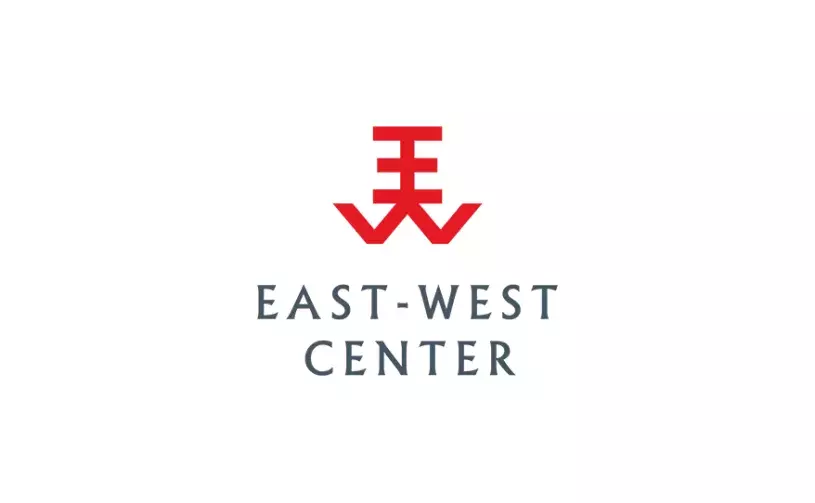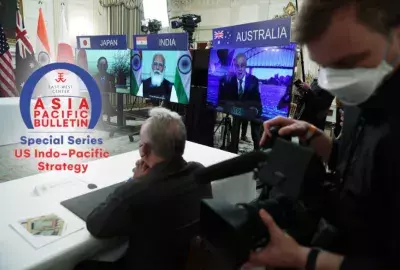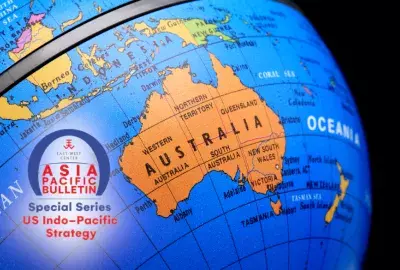Error message

|
Ketty Loeb, Grants and Development Specialist at the East-West Center, explains that “The concurrent crackdown on some aspects of civil society with the apparent “opening” of legal and administrative efforts, then, form the fine balance of the Xi administration’s approach to civil society thus far.” |
Since 2012, when President Xi took the reins of power at the 18th Chinese Communist Party (CCP) Congress, the Party has taken significant measures to both control and develop China’s civil society sector. In the first five years of Xi’s leadership, the period of civil society diversification and empowerment that characterized the Hu era was brought to a close as legal advocates, civil rights activists, and journalists working on topics deemed sensitive to the Party state were censored, harassed, rounded up, detained, or arrested. At the same time this crackdown has been occurring, however, the Xi administration has also placed an increased emphasis on “governing the country according to law” (yifa zhiguo) and using the law to strengthen “law-based administration” (yifa xingzheng). China has passed several significant laws surrounding the legal governance of civil society, including the long-awaited Charity Law, which the leadership claims will clarify the rights of Civil Society Organizations (CSOs) and citizens, improve the fundraising infrastructure, and make the management of civil society much more transparent and efficient. The Xi administration also appears to be cultivating a swath of CSOs for public-private partnership by enabling the development of capacity building organizations, national charity fairs, and building out the domestic philanthropic sector. Meanwhile, in an apparent ‘win’ for environmental CSO groups, a recent law made it possible for them to engage in public interest litigation against polluting enterprises.
The concurrent crackdown on some aspects of civil society with the apparent “opening” of legal and administrative efforts, then, form the fine balance of the Xi administration’s approach to civil society thus far. As time has passed, though, it has become apparent that the new laws far from guarantee the rights and organic development of civil society. For instance, while some CSOs — specifically those that serve the social, economic, and environmental aims of the Party — are being actively cultivated under the new laws, CSOs and individuals working on issues sensitive to the Party are being passively or actively rooted out under this system. The 2016 Foreign NGO Law places foreign NGOs under the supervision of the Ministry of Public Security (rather than the Ministry of Civil Affairs where all domestic CSOs must register) and establishes high barriers for legal registration on the Chinese mainland. The Party has also passed several new laws aimed at strengthening the surveillance capabilities of China’s vast security apparatus vis-à-vis civil society and private citizens. Legal scholars have argued the emerging legal system surrounding civil society in China is characterized as a rule by law system rather than rule of law system, wherein the law becomes a tool for social control by the Party rather than an independent and objective institution.
The question now, and in the wake of the 19th Party Congress, is what’s next for Chinese civil society? The short answer is that the legal developments of the recent past and decisions at the 19th Party Congress suggest a potentially grim outlook.
First, Xi Jinping has now established himself as a supreme, undisputed leader whose “Thought” is being enshrined in the constitution and who seems to be setting himself up for yet another term despite the two-term norm of previous leaders. This move is unsettlingly reminiscent of the Mao era, especially paired with other developments.
Second, the power of the Party is to be significantly strengthened vis-à-vis the state and society, and the Party will continue to build out social management and “law-based administration” tools of governance. Viewed in the larger context, this indicates that the law will continue to be used as a tool for social control rather than a basis for openness.
Third, even while being strengthened, the Party will itself be subject to “strict discipline,” “zero tolerance on corruption,” and a renewed emphasis on “correct ideology.” These points put Party members on notice to fall into step with Xi Jinping Thought. The insinuation is that if they deviate (either in deed or in thought), they may fall prey to the anti-corruption campaign, or otherwise be labelled as a threat to the Party. This looks like a move against pluralism in the Party, which will likely also serve to curtail pluralism within civil society as the Party increases its control.
Fourth, the emphasis on “correct ideology” and thought is also extremely worrisome given the new anti-terrorism and surveillance laws, as well as the recent announcement that by 2020 the Chinese government will launch a “Social Credit System” a big data platform that rates individual citizens by their “trustworthiness.” This potentially sets the scene for social — and thought — control beyond what already exists.
Fifth, Xi’s opening speech placed great emphasis on the presence of “grim challenges” to party rule and the need for enhanced security that will require the party, state, and society to vigilant for threats. Again, this could be setting the stage for a wider crackdown on civil society.
Sixth, in tandem with the “zero tolerance on corruption” directive, Xi called for the creation of a new National Supervision Commission that will root out corruption with a far broader jurisdiction than the Central Commission for Discipline Inspection, which oversees CCP members. The new super organ will expand its watchful eye to include all public service employees, including faculty at public universities, judges, and lawyers — individuals who are often on the frontline of effecting social change. While the President claims this supervisory body will better protect the rights of those under investigation, defendants will not be given access to lawyers.
These developments largely signal a return to Maoist-style governance that has little tolerance for pluralism, and increased capacity for social control. We have yet to see how this will play out. The ascent of former friend to civil society Wang Yang and Jiang Zemin acolyte Han Zheng to the Politburo Standing Committee are bright spots in the 19th Party Congress, and could indicate a greater tolerance for civil society than the other signals suggest.
|
Ketty Loeb, Grants and Development Specialist at the East-West Center, explains that “The concurrent crackdown on some aspects of civil society with the apparent “opening” of legal and administrative efforts, then, form the fine balance of the Xi administration’s approach to civil society thus far.” |
Since 2012, when President Xi took the reins of power at the 18th Chinese Communist Party (CCP) Congress, the Party has taken significant measures to both control and develop China’s civil society sector. In the first five years of Xi’s leadership, the period of civil society diversification and empowerment that characterized the Hu era was brought to a close as legal advocates, civil rights activists, and journalists working on topics deemed sensitive to the Party state were censored, harassed, rounded up, detained, or arrested. At the same time this crackdown has been occurring, however, the Xi administration has also placed an increased emphasis on “governing the country according to law” (yifa zhiguo) and using the law to strengthen “law-based administration” (yifa xingzheng). China has passed several significant laws surrounding the legal governance of civil society, including the long-awaited Charity Law, which the leadership claims will clarify the rights of Civil Society Organizations (CSOs) and citizens, improve the fundraising infrastructure, and make the management of civil society much more transparent and efficient. The Xi administration also appears to be cultivating a swath of CSOs for public-private partnership by enabling the development of capacity building organizations, national charity fairs, and building out the domestic philanthropic sector. Meanwhile, in an apparent ‘win’ for environmental CSO groups, a recent law made it possible for them to engage in public interest litigation against polluting enterprises.
The concurrent crackdown on some aspects of civil society with the apparent “opening” of legal and administrative efforts, then, form the fine balance of the Xi administration’s approach to civil society thus far. As time has passed, though, it has become apparent that the new laws far from guarantee the rights and organic development of civil society. For instance, while some CSOs — specifically those that serve the social, economic, and environmental aims of the Party — are being actively cultivated under the new laws, CSOs and individuals working on issues sensitive to the Party are being passively or actively rooted out under this system. The 2016 Foreign NGO Law places foreign NGOs under the supervision of the Ministry of Public Security (rather than the Ministry of Civil Affairs where all domestic CSOs must register) and establishes high barriers for legal registration on the Chinese mainland. The Party has also passed several new laws aimed at strengthening the surveillance capabilities of China’s vast security apparatus vis-à-vis civil society and private citizens. Legal scholars have argued the emerging legal system surrounding civil society in China is characterized as a rule by law system rather than rule of law system, wherein the law becomes a tool for social control by the Party rather than an independent and objective institution.
The question now, and in the wake of the 19th Party Congress, is what’s next for Chinese civil society? The short answer is that the legal developments of the recent past and decisions at the 19th Party Congress suggest a potentially grim outlook.
First, Xi Jinping has now established himself as a supreme, undisputed leader whose “Thought” is being enshrined in the constitution and who seems to be setting himself up for yet another term despite the two-term norm of previous leaders. This move is unsettlingly reminiscent of the Mao era, especially paired with other developments.
Second, the power of the Party is to be significantly strengthened vis-à-vis the state and society, and the Party will continue to build out social management and “law-based administration” tools of governance. Viewed in the larger context, this indicates that the law will continue to be used as a tool for social control rather than a basis for openness.
Third, even while being strengthened, the Party will itself be subject to “strict discipline,” “zero tolerance on corruption,” and a renewed emphasis on “correct ideology.” These points put Party members on notice to fall into step with Xi Jinping Thought. The insinuation is that if they deviate (either in deed or in thought), they may fall prey to the anti-corruption campaign, or otherwise be labelled as a threat to the Party. This looks like a move against pluralism in the Party, which will likely also serve to curtail pluralism within civil society as the Party increases its control.
Fourth, the emphasis on “correct ideology” and thought is also extremely worrisome given the new anti-terrorism and surveillance laws, as well as the recent announcement that by 2020 the Chinese government will launch a “Social Credit System” a big data platform that rates individual citizens by their “trustworthiness.” This potentially sets the scene for social — and thought — control beyond what already exists.
Fifth, Xi’s opening speech placed great emphasis on the presence of “grim challenges” to party rule and the need for enhanced security that will require the party, state, and society to vigilant for threats. Again, this could be setting the stage for a wider crackdown on civil society.
Sixth, in tandem with the “zero tolerance on corruption” directive, Xi called for the creation of a new National Supervision Commission that will root out corruption with a far broader jurisdiction than the Central Commission for Discipline Inspection, which oversees CCP members. The new super organ will expand its watchful eye to include all public service employees, including faculty at public universities, judges, and lawyers — individuals who are often on the frontline of effecting social change. While the President claims this supervisory body will better protect the rights of those under investigation, defendants will not be given access to lawyers.
These developments largely signal a return to Maoist-style governance that has little tolerance for pluralism, and increased capacity for social control. We have yet to see how this will play out. The ascent of former friend to civil society Wang Yang and Jiang Zemin acolyte Han Zheng to the Politburo Standing Committee are bright spots in the 19th Party Congress, and could indicate a greater tolerance for civil society than the other signals suggest.







